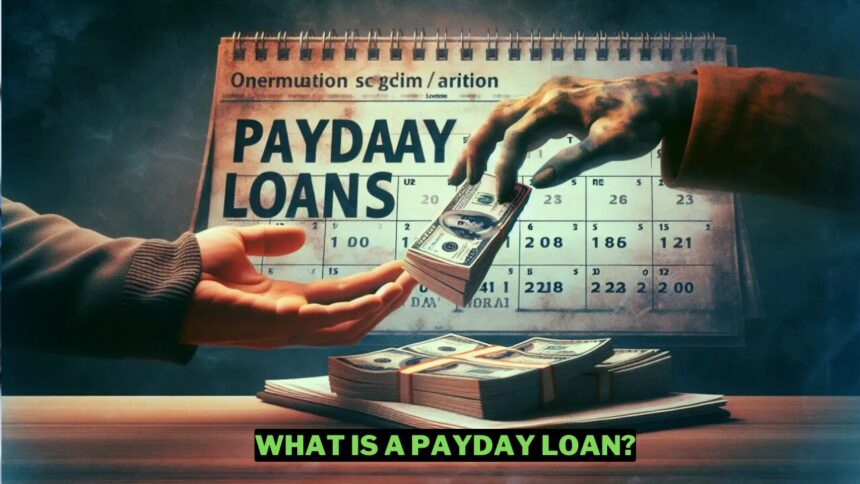A payday loan is a type of loan that doesn’t require any collateral and allows you to borrow money before you actually receive your paycheck. These loans can be quite enticing if you find yourself in urgent need of funds before your next payday.
However, it’s important to note that the repayment period for these loans is relatively short, leaving you with limited time to handle any unforeseen expenses. Consequently, many individuals who have taken out payday loans often find themselves unable to repay them and end up in a worse financial situation.
Payday loans are a popular choice for consumers, despite the high annual percentage rates (APRs) that can range from 115 to 650 percent or even higher. This is mainly because payday loans offer quick and convenient funding options.
However, it is crucial to have a clear understanding of how these loans function and explore alternative options to avoid getting trapped in a never-ending cycle of payday loan rollovers.
You Might Also Like:
What Is a Payday Loan?

A payday loan is a type of loan that is for a short duration and carries a high interest rate. It is based on the borrower’s income, with the loan amount typically being a portion of their upcoming paycheck. Payday loans exploit the borrower’s urgent need for credit by imposing an interest rate that is higher than the usual.
How do payday loans work?
A payday loan is a service provided by a lender where they assess your income and checking account details to provide you with immediate cash at a physical store. In the case of online transactions, the lender will transfer the funds directly to your bank account either on the same day or the following day.
How much do payday loans cost?
A payday loan is a type of short-term borrowing where lenders charge a fixed fee, typically between $10 and $30, for every $100 that is borrowed. Unlike traditional loans, payday loans do not have an interest rate. Instead, the entire loan amount along with the fee must be repaid in full with the borrower’s next paycheck.
Consumers who come across information regarding the risks associated with payday loans might find themselves puzzled. It is important to grasp the concept that the calculation of an annual percentage rate (APR) is based on the assumption that you will have a debt for a whole year.
However, when it comes to payday loans, the total amount borrowed along with any associated fees must be repaid within a short period of time, typically a few days or weeks.
Important information about payday loan interest rates
Understanding the concept of a payday loan is important, particularly in relation to the annual percentage rate (APR) associated with it. The APR determines the total amount of money you will need to repay.
For instance, if you borrow $500 with a finance charge of 30 percent, you will have to pay back $650 within two weeks. This results in an APR of 459 percent, making payday loans one of the costliest borrowing options available.
Payday loans and credit
Payday loans are a popular choice among borrowers due to their lenient credit score requirements. These loans do not necessitate a minimum credit score, making them accessible to individuals with less-than-perfect credit.
As long as you can provide evidence of steady employment and a regular income, your chances of approval are significantly increased. Payday lenders often market these loans as “no-credit-check loans,” indicating that your credit score and history are not taken into account during the application process.
A payday loan does not involve making multiple payments, which means that lenders do not have any payment history to report to credit bureaus. However, if you fail to repay the loan, the payday lender has the option to send your loan to collections, take legal action against you, and in certain situations, even seize a portion of your wages and withdraw funds from your bank accounts.
Risks of a payday loan
Payday loans are a type of borrowing that individuals typically turn to when they are facing significant financial difficulties. However, it is crucial to be aware of the potential hazards associated with these loans.
Are payday loans legal?
Payday loans are subject to regulations that vary from state to state. These regulations often involve placing restrictions on the annual percentage rate (APR) that lenders can charge for small loans, taking into account factors such as the loan amount and repayment period.
In recent years, several states have implemented stringent measures to control the cost of consumer loans, effectively prohibiting payday loans. However, it is important to note that payday loans are not prohibited in all states.
How to Get a Payday Loan
A payday loan is a type of loan that you can conveniently apply for through online platforms or in person at local lending institutions. These local providers are often small-scale lenders that have physical storefronts.
A payday loan is a type of loan that requires you to have a bank account and a government-issued identification. In addition, you will have to provide evidence of your income, such as your work pay stubs. The amount you can borrow as a payday loan is usually based on a percentage of your income.
Are Payday Loans Fixed or Variable?
A payday loan is a type of loan that is typically designed to be repaid in full with a single payment when you receive your next paycheck.
These loans have a set interest rate that remains the same throughout the repayment period. Some payday lenders may not explicitly state the interest rate, but instead impose a fixed flat fee ranging from $10 to $30 per $100 borrowed.
Is a Payday Loan Secured or Unsecured?
A payday loan is typically an unsecured loan option where borrowers are not required to provide any collateral or pledge valuable assets, unlike borrowing from a pawn shop.
In contrast, instead of receiving cash directly, the lender typically requests your consent to withdraw funds electronically from your bank, credit union, or prepaid card account.
Another option is for the lender to ask you to write a check for the repayment amount, which they will cash on the due date of the loan.
It is important to note that according to federal regulations, lenders are prohibited from making the approval of a payday loan contingent upon obtaining the consumer’s authorization for recurring electronic fund transfers.
Conclusion
A payday loan is a type of loan that is specifically intended to cover immediate financial needs. The unique aspect of these loans is that they do not require any collateral or a bank account for approval. However, it is important to note that payday loans come with significantly high fees and interest rates.
Payday loans should be approached with caution by borrowers. These types of loans are often seen as predatory lending practices due to their exorbitant interest rates, lack of consideration for a borrower’s ability to repay, and undisclosed provisions that result in additional fees for borrowers.
Consequently, payday loans can easily ensnare consumers in a cycle of debt. If you are thinking about obtaining a payday loan, it would be wise to explore alternative options for emergency loans specifically designed for individuals with poor credit.





